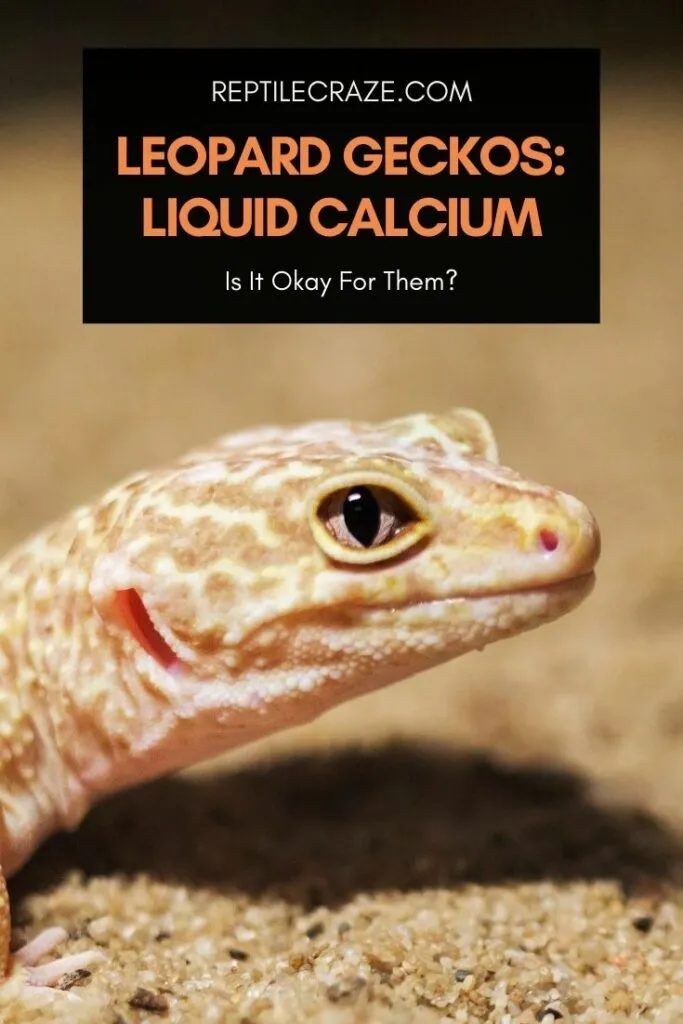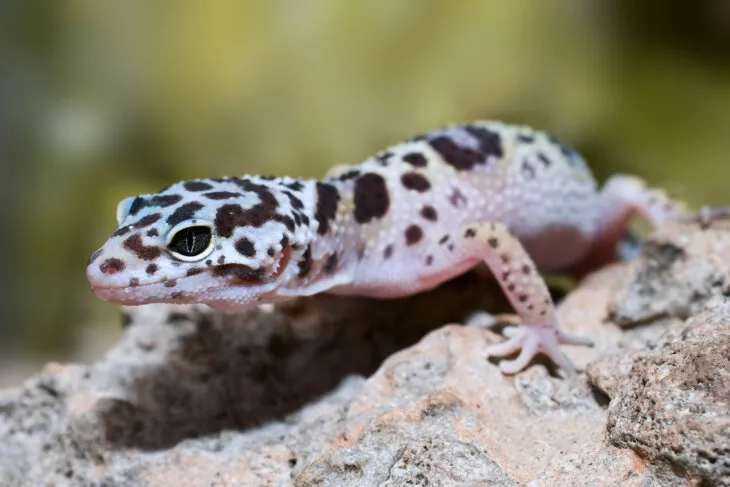
Calcium is one of the most important nutrients required by leopard geckos. The mineral is essential for bone building and is an integral part of the skeletal system of the body.
While it’s a less popular option compared to calcium powder or tablets, liquid calcium can be a good source of calcium for leopard geckos because it can be absorbed very quickly in the small intestine.
If you’d like to know about the pros and cons of liquid calcium for leopard geckos and the best way to give this to a leopard gecko, read on!
Table of Contents
Is Liquid Calcium Good For Leopard Geckos?
As the name implies, liquid calcium is a calcium supplement that’s available in liquid form. The most common types of calcium being used in liquid calcium formulas include calcium chloride and calcium gluconate.
Being in liquid form, liquid calcium can easily be given to leopard geckos. It is an ideal way to meet your pet’s daily calcium needs.
Liquid calcium is also an ideal treatment for leopard geckos that suffer from calcium deficiency (more on that here) and MBD as it’s associated with quicker recovery time compared to tablets or powders.
Liquid calcium is easier to absorb than both solid calcium supplements and the calcium found naturally in foods. It’s often combined with vitamin D supplementation and UVB lighting.
Pros and Cons of Liquid Calcium For Leopard Geckos
There are several benefits and disadvantages to using liquid calcium for leopard geckos.
Pros
- Upon ingestion, it can easily pass through the gastrointestinal tract and quickly be absorbed in the small intestine.
- Liquid calcium formulas are available with or without vitamin D3.
- Ideal for leopard geckos that are finicky when it comes to eating dusted insects
- Convenient and easy to use
- Affordable
- Helps meet the calcium needs of leopard geckos and maintain strong bones
Cons
- Giving the correct dose is important as overdosing is a likely risk.

How Do You Give Liquid Calcium To Leopard Geckos?
There are several ways to give liquid calcium to leopard geckos. Before giving some to your pet, make sure to check the recommended dose and method of administration.
- Spraying
Liquid calcium may be sprayed directly to your leo’s
Misting or spraying is the most common way to use liquid calcium products. After spraying, let a few seconds pass before offering the
- Given directly
You can spray the liquid calcium directly into your leo’s mouth. Just make sure that you’re giving the correct dosage. This method of giving liquid calcium is an excellent way to ensure that your leo is getting the right amount of calcium that its body needs.
- Added to water
Liquid calcium can also be added to your leo’s water. Any leftover water for the day should be discarded and a fresh mixture should be provided daily.
Always remember that regardless of whatever technique you will use to give liquid calcium to your leopard gecko, make sure that you always give the appropriate dose.
Make a habit of reading all the directions on the product package, or you may consult your veterinarian regarding the proper dosage.
Tip: If you are unsure about the whole calcium thing, check out our huge leopard gecko calcium guide here!
Can Leopard Geckos Have Too Much Liquid Calcium?
High calcium intake in leopard geckos can lead to the formation of calcium sacs, which appear as swollen bumps or small air sacs in their armpits. These show that over-supplementation has been occurring for some time.
The appearance of armpit bubbles may also be a result of overfeeding.
Hypercalcemia
Hypercalcemia can occur when there is too much calcium in the blood. The condition is characterized by the following signs:
- Bones become weak and swollen and become prone to injury.
- The absorption of other nutrients in the digestive system may be inhibited.
- Formation of bubbles, lumps, or bumps in the leo’s armpit.
- Cardiac arrest
- Death
- Enchi Ball Python: A Unique and Stunning Morph of Python regius - March 27, 2025
- Emerald Tree Monitor: The Enigmatic Green Guardian of the Rainforest - March 26, 2025
- The Egyptian Cobra (Naja haje): A Fascinating Serpent - March 25, 2025
